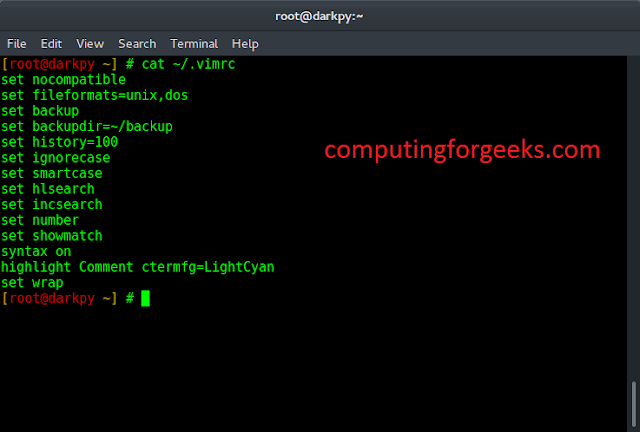The counter can be used to calculate the frequency in a list or in a string because as any list or string is passed as input, it returns output as a dictionary having keys are the unique elements of the list and values are the corresponding frequencies of the elements.
In the code given below, Counter from Collection Python library is imported to find the frequency of every unique character occurring in this string, By using Counter on the list, the frequency of each unique elements present in the list can also be found.
Python3
# Write Python3 code here# Counter used in string to find frequencies of all its unique Charactersfrom collections import Counters1 ='aabbbcccdeff'c1 = Counter(s1)print("c1 :", c1)# Counter used in List to find frequencies of all its unique elements of listL1 =[1, 2, 1, 1, 4, 4, 4, 5, 6, 6, 3, 3, 0, 0]t1 = Counter(L1)print("t1 :", t1) |
c1 : Counter({'b': 3, 'c': 3, 'a': 2, 'f': 2, 'e': 1, 'd': 1})
t1 : Counter({1: 3, 4: 3, 0: 2, 3: 2, 6: 2, 2: 1, 5: 1})
Performing certain operations on returned output dictionary if d is output dictionary then like d.items(), d.keys(), d.values()
Python3
from collections import Counterd ='aabbbcccdeff'd = Counter(d)# To print Counter value print("d :", d) # To access the values corresponds to each keys of the returned dictionary print("d.values() : ", d.values()) # To get the keys and values both of dictionaryprint("d.items() :", d.items())# To get only the keysprint("d.keys() :", d.keys())# To sort the values of dictionary print("sorted(d) :", sorted(d)) |
d : Counter({'b': 3, 'c': 3, 'a': 2, 'f': 2, 'e': 1, 'd': 1})
d.values() : dict_values([2, 3, 3, 2, 1, 1])
d.items() : dict_items([('a', 2), ('b', 3), ('c', 3), ('f', 2), ('e', 1), ('d', 1)])
d.keys() : dict_keys(['a', 'b', 'c', 'f', 'e', 'd'])
sorted(d) : ['a', 'b', 'c', 'd', 'e', 'f']
Addition of two Counters
Addition of two counter creates the additions of values corresponds to each keys, and if a key that is present in one counter and not in other, in that case this key value also get into final output.
Python3
from collections import Countert1 = Counter('aabbddffggjik')t2 = Counter('aaabbbssshhhggdkkll')print("t1:", t1)print("t2:", t2)print("t1 + t2 :", t1 + t2) |
t1: Counter({'g': 2, 'a': 2, 'b': 2, 'f': 2, 'd': 2, 'k': 1, 'j': 1, 'i': 1})
t2: Counter({'a': 3, 'b': 3, 'h': 3, 's': 3, 'l': 2, 'g': 2, 'k': 2, 'd': 1})
t1+t2 : Counter({'a': 5, 'b': 5, 'g': 4, 'k': 3, 'h': 3, 'd': 3, 's': 3, 'l': 2, 'f': 2, 'j': 1, 'i': 1})
Subtraction of two Counters
Counts of common elements are subtracted from each other and (keeps only positive counts)
Python3
from collections import Countert1 = Counter('aabbddffggjik')t2 = Counter('aaabbbssshhhggdkkll')print("t1:", t1)print("t2:", t2)print("t1-t2 :", t1-t2)print("t2-t1 :", t2-t1) |
t1: Counter({'f': 2, 'd': 2, 'b': 2, 'a': 2, 'g': 2, 'k': 1, 'i': 1, 'j': 1})
t2: Counter({'h': 3, 'b': 3, 'a': 3, 's': 3, 'l': 2, 'k': 2, 'g': 2, 'd': 1})
t1-t2 : Counter({'f': 2, 'i': 1, 'j': 1, 'd': 1})
t2-t1 : Counter({'h': 3, 's': 3, 'l': 2, 'k': 1, 'b': 1, 'a': 1})
Intersections(&) of two Counters
Intersection(&) will keep only the minimum of corresponding counts: min(t1[x], t2[x]):
Python3
from collections import Countert1 = Counter('aaabbbbccdeeee')t2 = Counter('aabbccccdddee')print("t1 :", t1)print("t2 :", t2)print("t1&t2 :", t1&t2) |
t1 : Counter({'e': 4, 'b': 4, 'a': 3, 'c': 2, 'd': 1})
t2 : Counter({'c': 4, 'd': 3, 'a': 2, 'e': 2, 'b': 2})
t1&t2 : Counter({'c': 2, 'a': 2, 'e': 2, 'b': 2, 'd': 1})
Union(|) of two Counters
Union(|) will keep only the maximum of corresponding counts: max(c[x], d[x]):
Python3
from collections import Countert1 = Counter('aaabbbbccdeeee')t2 = Counter('aabbccccdddee')print("t1 :", t1)print("t2 :", t2)print("t1|t2 :", t1|t2) |
t1 : Counter({'b': 4, 'e': 4, 'a': 3, 'c': 2, 'd': 1})
t2 : Counter({'c': 4, 'd': 3, 'a': 2, 'b': 2, 'e': 2})
t1|t2 : Counter({'b': 4, 'e': 4, 'c': 4, 'a': 3, 'd': 3})




